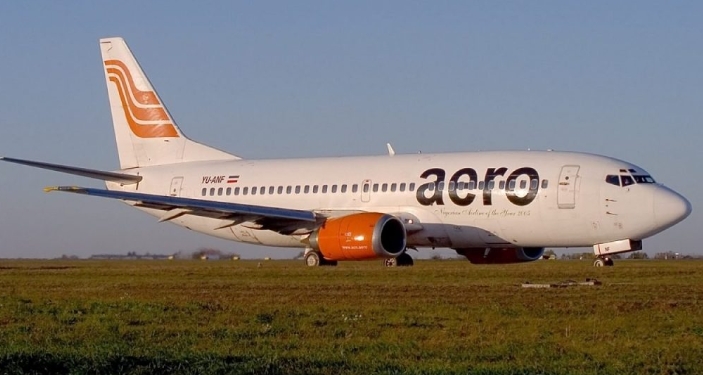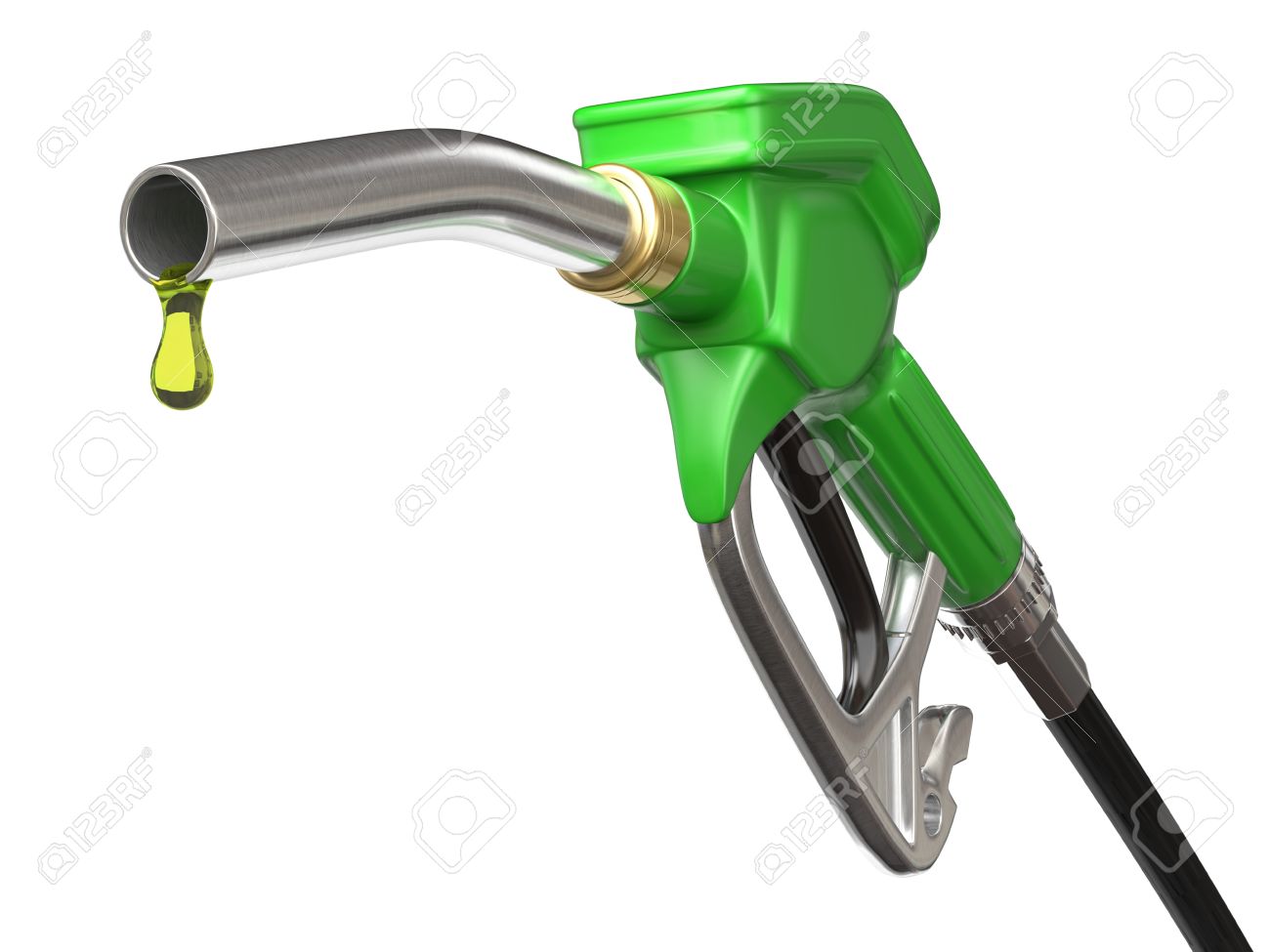Business
Outrage As Aero Contractors Abandon Passengers’ Luggage To Shed Load

There was outrage at the Margaret Ekpo Airport in Calabar on Sunday, after passengers from Abuja on an Aero Contractor flight found that the airline had deliberately abandoned their luggage before take off.
Airline officials had claimed that passengers were hinted that their luggage would not be flying with them but those affected insisted the airline abandoned their luggage in Abuja on purpose, allegedly to conserve aviation fuel.
Although it is not clear how that could have been possible, but other passengers at the airport claimed the luggage was deboarded in Abuja to make room for airlifting of aviation fuel, reportedly to be used for another flight via Calabar.
Passengers who spoke to DAILY POST, said Sunday’s incident was not the first time the airline was denying passengers of their luggage. Some claimed they had been frequenting the airline, days after their flights and were yet to get their bags.
“My luggage was cleared by FAAN alongside others and we even saw it at the foot of the airline while boarding, which was very deceptive of Aero. I was shocked and angry when I did not see my luggage at arrival here in Calabar. I was told my luggage will arrive tomorrow by 5:30 pm” one of the affected passengers, a journalist, Bishop Onche, lamented.
Nuel, another Abuja-Calabar passenger said, two days after his flight, he was back at the airport, again, to see if his luggage had arrived.
“We arrived here on Friday, they said the aircraft was overcrowded or something like that and they couldn’t carry our bags. So I left, then I came here on Saturday to claim it and they said there was no flight yesterday that’s why I am here today being Sunday only to meet a host of new passengers without luggage too.”
Nuel, a Sound Engineer, lamented that he had very essential work equipment in his luggage for a job he came to Calabar for and was not informed that his luggage would be dumped for that long to shed some weight off the aircraft.
He also decried the attitude of airline officials who allegedly were nonchalant at the plight of passengers.
“This is past 4pm and I have been here for the past one hour and nobody has said anything,” Nuel complained.
Udom Blessing Matthew, another passenger, told DAILY POST that she was in Calabar for a marriage ceremony but two days after the wedding she came to attend, a bag containing her bridesmaids’ dress was still at the airport in Abuja.
Udom said she arrived on Aero contractors 3.10pm flight on Friday, only to discover her luggage was left behind in Abuja.
“I left Abuja on Friday for a wedding which was supposed to hold on Saturday, the dress and hair I was supposed to wear at the wedding are in my luggage and this is Sunday I still haven’t gotten them. I’ve been wearing the same clothes and inner wear since Friday,” Udom cried profusely.
She claimed the airline treated its passengers with disdain as none of those affected had received either a call, a text message or an explanation as to why their luggage was abandoned.
But an Aero Contractors Manager in Calabar, Victor Dan, who spoke to our correspondent said he had called Abuja and was told that the bags would come in on Monday afternoon, however, after a follow-up inquiry, an affected passenger confided in our reporter that he was yet to receive his luggage.
A staff of the Federal Airport Authority of Nigeria, (FAAN) in Calabar, stationed at the Servicom desk said she had recorded the incident and that a report would be sent to the office of the NCAA as it is the responsibility of the agency to sanction the airline.
READ ALSO: Man City’s Defender Denied Bail, To Be Held In Prison Until Next Year
An official of the Nigerian Civil Aviation Authority (NCAA), who simply identified himself as Bruno, said this was not the first time the airline had treated passengers in such a shabby manner.
Bruno explained that though shedding of weight on aircrafts was not new in aviation history, the NCAA Act mandates the airline in question to inform all the affected passengers before take-off.
“And even after take-off, the airline is expected to pay compensation to the affected passengers while ensuring that the luggage is taken to the passengers wherever or whatever address they make available,” Bruno said.
He asked passengers to fill the necessary complaints forms promising to follow up the matter and assured our correspondent that the NCAA would ensure that compensation is paid to affected passengers and their luggage delivered to them.
(DAILY POST)
Business
Naira Extends Appreciation Against US Dollar

The naira extended appreciation against the dollar at the official foreign exchange market on Wednesday.
The Central Bank of Nigeria’s data showed that the Naira further firmed up on Wednesday to N1,418.26 per dollar, up from N1,419.07 exchanged on Tuesday.
Wednesday’s uptrend represents a slight N0.80 gain against the dollar on a day-to-day basis.
READ ALSO:Naira Records Significant Appreciation Against US Dollar
Meanwhile, at the black market, the Naira remained unchanged against the dollar at N1,480 per dollar on Wednesday, the same rate recorded the previous day.
The development comes as Nigeria’s foreign reserves further rose to $45.62 billion as of January 6th, 2026.
Recall that on Tuesday, the Naira posted a N10.24 gain against the dollar.
Business
Naira Continues Gain Against US Dollar As Nigeria’s Foreign Reserves Climb To $45.57bn

The Naira appreciated further against the United States Dollar at the official foreign exchange market, beginning the week on a good note.
Central Bank of Nigeria data showed that the Naira strengthened on Monday to N1,429.31 per dollar, up from N1,430.85 exchanged on Friday, 2 January 2026.
This means that the Naira gained N1.56 against the dollar on Monday when compared to N1,430.85 last week Friday.
READ ALSO:Naira Records Significant Appreciation Against US Dollar
At the black market, the Naira dropped by N5 to N1480 per dollar on Monday, down from N1475 traded Friday.
The development comes as the country’s external reserves rose to $45.57 billion as of Friday last week.
Business
NNPCL Reduces Fuel Price Again

The Nigerian National Petroleum Company Limited, NNPCL, has again reduced its premium motor spirit price.
In Abuja, on Monday morning, it was gathered that NNPCL retail outlets have reduced their fuel price to N815 per liter, down from N835.
This means that the NNPCL filling stations cut their price by N20.
The fresh price has been implemented at NNPCL filling stations in Wuse Zone 6 and 4 Abuja, Keffi-Abuja Road, and Kubwa Expressway.
READ ALSO:Fuel Price Cut: NNPCL GCEO Ojulari Reveals Biggest Beneficiaries
An NNPCL filling station attendant, who preferred anonymity, told DAILY POST that the new price was implemented on Sunday evening.
However, the N815 per liter is N79 higher than the N739 per liter sold at Dangote Refinery’s backed MRS filling stations nationwide.
DAILY POST recalls that NNPCL on December 19, 2025, cut its price of petrol by N80 to N835 amid a price war among players in the country’s oil downstream sector triggered by Dangote Refinery’s gantry price reduction to N699 per liter.

 News4 days ago
News4 days agoWhat I Saw After A Lady Undressed Herself — Pastor Adeboye

 Headline4 days ago
Headline4 days agoPROPHECY: Primate Ayodele Reveals Trump’s Plot Against Tinubu

 Metro4 days ago
Metro4 days agoArmed Robbers Shot PoS Operator To Death In Edo

 Business3 days ago
Business3 days agoNNPCL Reduces Fuel Price Again

 Metro3 days ago
Metro3 days agoAAU Disowns Students Over Protest

 Metro5 days ago
Metro5 days agoJoint Task Force Kills 23 Bandits Fleeing Kano After Attacks

 Politics5 days ago
Politics5 days ago2027: Rivers APC Pledges To Follow Wike’s Instructions

 Metro3 days ago
Metro3 days agoEdo: Suspected Kidnappers Kill Victim, Hold On To Elder Brother

 Metro3 days ago
Metro3 days agoNine Soldiers Feared Dead In Borno IED Explosion

 Metro2 days ago
Metro2 days agoJUST IN: Court Grants Malami, Wife, Son N500m Bail Each




















